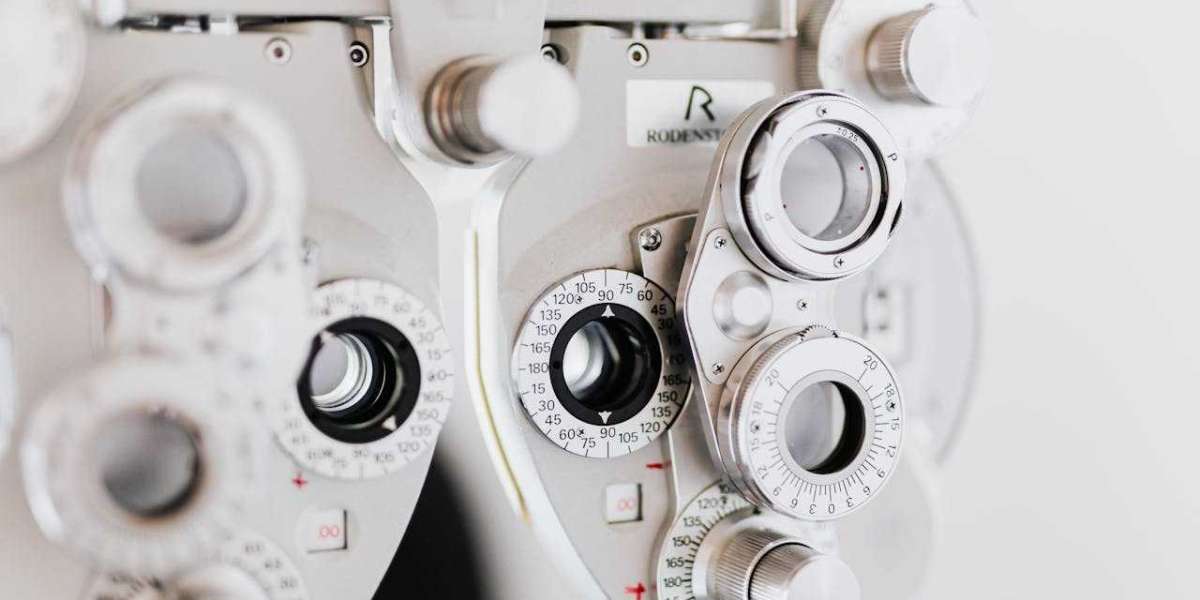When it comes to powering your devices, vehicles, or renewable energy systems, the choice of battery can make all the difference. The 12 V 80 Ah batteries are versatile and reliable for various applications, from RVs to solar power setups. But with so many choices on the market, how do you know which is right?
Navigating through different brands and types might seem overwhelming at first glance. However, understanding what makes a quality Battery will empower you to make an informed decision that suits your needs without breaking the bank.
Understanding Battery Capacity and Voltage
Battery capacity and voltage are crucial for understanding how a battery performs. Capacity, measured in amp-hours (Ah), indicates the amount of energy stored. In simple terms, an 80 Ah rating means the battery can provide a steady current of 80 amps for one hour or lesser amounts over extended periods. Voltage reflects the electrical potential difference within the battery. A nominal voltage of 12 volts is common for many applications, from solar setups to recreational vehicles. This standard makes it easy to find compatible components.
The relationship between capacity and voltage determines performance efficiency and runtime. Higher capacity batteries can deliver power longer but require more space and weight considerations. Balancing these factors ensures you choose a battery that meets your needs without compromising quality or durability.
Factors to Consider When Choosing a 12 Volt 80 Amp Battery
Several factors come into play when selecting a 12 Volt 80 Amp Battery. Quality and durability are paramount. You want a battery that can withstand harsh conditions and perform optimally over time.
Brand reputation also matters significantly. Established brands often have better customer support and warranties, which adds value to your purchase. Price should fit within your budget, but remember that the cheapest option isn't always the best. Sometimes, investing more upfront can save you from costly replacements later on.
Additionally, consider the type of application for which you'll use the battery. Different uses may require specific features or performance levels that not all batteries provide. Check reviews and ratings before making your decision. Real user experiences can offer insights that specifications alone might not reveal.
A. Quality and Durability
Quality and durability are paramount when selecting a battery. A reliable battery can significantly affect your overall experience, whether for recreational or practical use. Look for batteries made with high-quality materials. These often feature robust casings that resist impacts and environmental stressors. This factor contributes to the battery's longevity, allowing you to enjoy consistent performance over time.
Additionally, consider how well a battery can withstand temperature fluctuations. Extreme heat or cold can negatively impact performance if a unit isn’t designed for resilience. Check user reviews and industry ratings as they provide real-world insights into durability. Quality assurance certifications also help indicate reliability in various conditions. Choosing wisely in this area ensures you're investing in something that will serve you well through many cycles without frequent replacements.
B. Brand Reputation
Brand reputation plays a crucial role when selecting a battery. A well-established name often signifies reliability and quality. Trusted brands invest in research and development to enhance their products. Customers frequently share experiences through reviews. These testimonials can offer insights into performance and longevity. Brands with positive feedback are generally more dependable.
It’s also vital to check for warranties or guarantees the manufacturer offers. A solid warranty reflects confidence in the product's durability. Reputable companies typically provide excellent customer service, making it easier to resolve any issues that arise post-purchase. Engaging with customers fosters loyalty and trust over time.
Look for brands recognized within industries such as renewable energy, marine applications, or automotive sectors. This recognition assures you they understand the unique demands of a battery application.
C. Price and Budget
Price plays a significant role when considering a battery. High-quality batteries come at varying costs, and finding one that fits your budget without sacrificing performance is essential. Investing in a reliable battery can save you money over time. Cheaper options may seem attractive initially but often lead to higher replacement costs due to decreased lifespan or poor efficiency.
Research is crucial when evaluating different brands and models within your price range. Look for customer reviews highlighting value for money alongside durability. Consider the warranty manufacturers offer, which can indicate confidence in their product's longevity and reliability. A slightly higher upfront cost could protect you from future expenses if issues arise early on. Balancing quality with affordability ensures you make an informed decision while securing effective power solutions for your needs.
Types of a 12 Volt 80ah Battery
When exploring types of a 12 Volt 80ah Battery, the two main contenders are lead-acid and lithium-ion batteries. Lead-acid batteries have been around for decades. They are widely used in various applications like vehicles and emergency backup systems. These batteries offer reliability at a lower cost but can be heavier and require more maintenance than their modern counterparts.
On the other hand, lithium-ion batteries are gaining popularity due to their lightweight design and longer lifespan. They charge faster and discharge slower and often come with built-in management systems that enhance performance. Their initial price is higher, but many users find the long-term benefits outweigh the upfront costs. Both options effectively serve different needs; understanding their strengths helps you make an informed choice tailored to your requirements.
A. Lead-Acid Batteries
Lead-acid batteries, consisting of lead dioxide, sponge lead, and sulfuric acid, have been a reliable choice for many applications. They are well-known for their robustness and affordability. One significant advantage is their ability to provide high surge currents. This makes them ideal for starting engines in vehicles or powering heavy machinery.
However, they do come with some drawbacks. Their weight can be considerable, making them less portable than other options. Additionally, they require regular maintenance to ensure longevity. Despite these challenges, many users appreciate lead acid batteries' long performance history. They remain a dependable solution in various industries for tasks requiring consistent power over time without breaking the bank.
B. Lithium-ion Batteries
Lithium-ion batteries have revolutionized energy storage. They are often lighter and more compact than traditional options, making them ideal for many applications, from electric vehicles to portable electronics. One standout feature of lithium-ion technology is its impressive energy density. With a higher capacity and smaller size, these batteries can provide longer usage times without the bulkiness of other types.
Additionally, they boast faster charging capabilities. You can spend less time tethered to an outlet and more time enjoying your devices or powering your systems. Another significant advantage is their low self-discharge rate. Unlike lead-acid batteries that lose charge over time even when not in use, lithium-ion solutions retain their power much better during periods of inactivity.
However, it’s essential to consider quality when selecting a lithium-ion 12 Volt 80 Ah battery. Not all products on the market meet high-performance standards.
Maintenance Tips for 80 Ah 12v Battery Longevity
Regular maintenance is essential to extend the life of your 80 Ah 12v battery. Start by keeping terminals clean and free from corrosion. A simple wipe with a cloth can make a significant difference in conductivity. If you’re using a lead-acid battery, check the fluid levels. Top them up with distilled water to prevent damage from low electrolyte levels.
Temperature plays a crucial role as well. Store your battery in moderate conditions, avoiding extreme heat or cold, which can affect performance and lifespan. Periodic charging is vital, too. Avoid letting the battery discharge completely; aim for partial discharges to optimize its health over time.
Consider investing in a smart charger that prevents overcharging while maintaining optimal charge levels when not in use. This proactive approach can significantly boost longevity and reliability.
Care Tips for Optimal Battery 80ah 12v Performance
Regular checks are essential to ensure the optimal performance of Battery 80ah 12v. Start by inspecting connections for corrosion or dirt. Clean terminals gently with a wire brush to maintain good conductivity. Temperature plays a significant role in battery health. Keep your battery in a cool environment, away from extreme heat or cold. Excessive temperatures can lead to reduced capacity and lifespan.
Charge your Battery properly using an appropriate charger designed for its type. Avoid overcharging, as it can significantly shorten the battery's overall life. Use a multimeter to perform periodic tests on your battery’s voltage level and state of charge. This proactive approach helps you catch any issues early, ensuring reliable power when needed.
Common Misconceptions about 12v 80 Ah Battery
Many people believe that 12v 80 Ah Battery is created equal. This misunderstanding can lead to poor purchasing decisions and disappointment in performance. Another common myth is that lead-acid batteries require no maintenance. While they may be more forgiving than other types, neglecting them can significantly shorten their lifespan.
Some users also think a higher amp-hour rating guarantees longer usage time without understanding the impact of discharge rates and load demands on battery life. There’s a misconception about weight, too—heavier isn’t always better. Due to advanced technology, a lightweight lithium-ion battery can outperform its bulkier counterparts.
Many assume that it cannot be salvaged once a battery is discharged. Proper recharging techniques can restore much of its capacity if caught early enough.
Investing in a quality 12v 80 Amp Battery for long-term savings
Investing in a quality 12v 80 Amp Battery may seem a hefty upfront cost, but the long-term benefits are undeniable. High-quality batteries tend to last longer and perform better under various conditions. This reliability translates into fewer replacements over time.
Moreover, a superior battery can provide consistent power output. When you choose an efficient option, you're reducing energy waste and maximizing the performance of your devices or appliances. Consider the peace of mind that comes with knowing your battery won't fail when you need it most. Quality batteries often come with warranties, too, offering additional protection on your investment.
In essence, opting for durability today means less hassle tomorrow. It’s not just about immediate savings; it's about crafting a sustainable approach to energy needs that pays off down the road.
Conclusion
The quality 12 V 80 Ah batteries are essential for optimal performance. A reliable battery powers your devices and ensures peace of mind during use. When choosing the right one, consider factors like durability, brand reputation, and cost. Each element is crucial in determining how well the battery meets your needs over time. Understanding different types, such as lead-acid and lithium-ion batteries, can guide you to make informed decisions tailored to specific applications.
FAQs
What applications are suitable for 12 V 80 Ah batteries?
The 12 V 80 Ah Batteries are versatile and can be used in various applications, including recreational vehicles (RVs), marine uses, solar energy systems, and backup power supplies. Its capacity makes it ideal for those who need reliable power over extended periods.
How do I know if I’m choosing a quality battery?
Look for quality indicators such as warranty duration, customer reviews, and certifications from recognized testing organizations. A reputable brand often provides better performance and durability.
Can I extend the life of my battery with proper care?
Absolutely! Regular maintenance, such as checking charge levels, cleaning terminals, and ensuring proper storage conditions, can significantly enhance the lifespan of your battery. Following manufacturer guidelines also contributes to optimal performance.
Related Business Listings |







